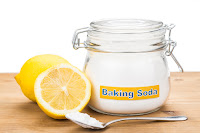Braces can correct misaligned teeth to improve your smile and your dental health, but braces pain can make you uncomfortable.
How Braces Work
Knowing a bit about how braces work can help you prepare for the braces pain you might experience. Braces place continuous pressure on the teeth to slowly move them into a different position. The key components of braces are:
- Brackets: A bracket is attached to each tooth or to a band placed around the tooth. Brackets hold the wires that actually cause the teeth to move. Braces pain associated with brackets may include pain from the band or the brackets.
- Wires: The wires used for braces are known as arch wires. They are attached to the brackets, and an orthodontist adjusts them at regular visits. Sometimes braces pain occurs soon after the braces are adjusted.
Benefits Of Braces
Braces pain can be uncomfortable, but wearing braces to improve your bite can help to eliminate other types of mouth and tooth pain caused by misaligned teeth. Other benefits of braces include:
- Easier Oral Care: Straight teeth are easier to clean, so you will be at less risk for tooth decay and gum disease.
- Increased Confidence: When braces have corrected your misaligned teeth, you’ll enjoy the improved self-confidence that comes with a healthy smile.
What Causes Braces Pain?
The exact cause of braces pain is unknown, but it may be attributed to internal or external factors.
- Internal: Some research has shown that braces pain may be caused by changes in blood flow that occur when the braces apply pressure to the teeth.
- External: The physical rubbing of the brackets and wires can cause braces pain in the soft tissue inside the mouth. This type of braces pain usually lessens with time, as the tissues become tougher. Sometimes one of the arch wires can cause braces pain by poking into the back of the mouth, but orthodontic wax can usually relieve this.
How to Relieve Pain from Braces
Many products are available to provide relief of braces pain. For pain associated with the pressure of the braces, try over the counter pain relieving products. Tablets or capsules such as Motrin or Advil can provide relief of braces pain, or you can use topical pain relieving products. Ask your dentist for recommendations if your braces pain persists. In addition, toothpaste, mouth rinse, and dental floss designed for sensitive teeth such as those in the Crest Pro-Health Sensitive Shield regimen can help relieve tooth pain. (1), (2)
Try these additional tips to relieve braces pain:
- Eat Soft Foods: If you tend to experience braces pain after an orthodontic adjustment, stick to soft foods, such as Jello®, pasta, and soft-cooked vegetables for the first day or so.
- Brush Soft: A soft-bristled toothbrush can help ease braces pain.
- Protect Your Braces: If you play contact sports while wearing braces, be sure to use a mouth guard. Being hit or falling during sports can cause brackets to break or wires to come loose, which causes braces pain and adds to the expense of orthodontic care.
How to Brush Your Teeth with Braces
While brushing teeth with braces may be a bit challenging it’s even more important for people with braces to brush properly. That’s because food particles can easily get caught in your braces, which can lead to harmful plaque bacteria that can cause gum disease. Effectively brushing teeth with braces is very important for your long-term oral health.
How to Clean Braces
- Ask your dental professional for a brush that's specifically designed for brushing teeth with braces. These brushes are made to reach in between all brackets and hardware.
- Brushing teeth with braces takes a bit longer than it does without braces. Brush from top to bottom and in between all braces. Take your time to ensure you keep your teeth healthy and protected while you wear braces.
- Brush more often, including after every snack or meal.
- Use an anti plaque/gingivitis mouth rinse to help remove food particles that linger in places your toothbrush can’t reach, as well as to prevent new plaque from forming.
- Ask your dental professional if they have any recommendations for brushing teeth with braces. They can show you the best techniques and ensure you know the best approach.
Once again, effectively brushing teeth with braces can help keep your teeth and mouth healthy. When your braces come off, you’ll be thrilled with your healthy teeth and bright, beautiful smile.
To read the entire article visit crest.com
Bensonhurst Smiles
Chung Hin Lau, DDS
6306 18 Ave, 2nd Floor
Brooklyn, NY 11204
(718) 232-4044
BensonhurstSmiles.com
 If you ever get nervous just thinking about going to the dentist, you’re not alone. Perhaps you’re scared the visit might hurt or you haven’t been in a while and not sure what the dentist will find.
If you ever get nervous just thinking about going to the dentist, you’re not alone. Perhaps you’re scared the visit might hurt or you haven’t been in a while and not sure what the dentist will find. 





